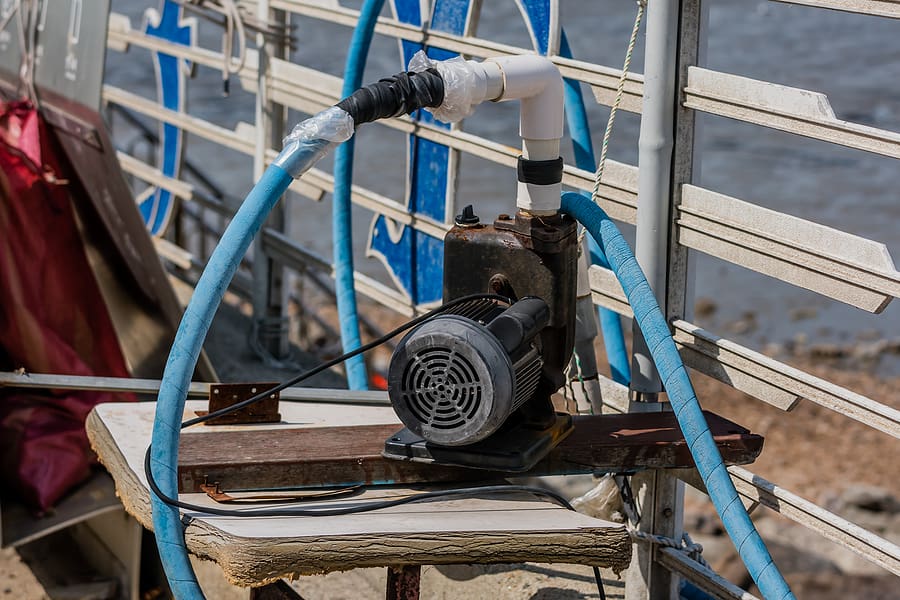Standing Water? Standing IN Water? Call now.
If your building is flooded, stop reading and call us!
If you’ve had previous damage from water and it’s less of an emergency, you can call us or contact us by email.



Do You Need A Sump Pump In Your Basement?

Many homes and businesses in the Southeastern Wisconsin area have some kind of underground level, whether that’s as simple as a basement in a home or elaborate as a parking lot for a large business tower. But what varies a lot from one property to the next is the presence of water. In the case of an underground parking lot, this may not be a big issue. However, water on the carpet or pooling near electronics can be a serious issue for a home theater or home office in someone’s basement.
For some, the solution to this problem is installing a sump pump, but is this the right fix for you?
What Is A Sump Pump?
As you may have already guessed from the name, a sump pump is a mechanical pump, but in this case, it’s not pumping air but water. This is a proposed solution for a property when the location makes it likely that water overflow in the area will regularly occur.
In other words, instead of trying to keep water from getting in the first place, a sump pump acknowledges that water leakage is unavoidable and is installed to get the water out once it enters the property. For buildings in low-lying areas where water naturally accumulates during rainfall or spring melt, a sump pump can be an essential purchase to prevent repeated, expensive basement repairs because water is always getting in.
How a Sump Pump Works
Sump pumps are usually installed in a small “pit” somewhere in the basement designed to gather the water that accumulates in the basement naturally. The nature of the pump varies by need, budget, and preference. Some sump pumps sit in the basin, some outside of it. Some have backups powered by water pressure, only going into action when the water accumulates and crosses a certain pressure threshold. Other pumps use electricity via battery power as a backup to pump out water when needed.
The water, once pumped out, is then sent down a drain line to empty some distance away from the building where the water presence has no effect. This may sometimes be a municipal drainage system, a dry well, a creek, or a pond.
The Savings
Sump pumps are not recommended for every property. A home or office situated on a hill or other “high ground,” for example, is unlikely to accumulate a lot of water. During rainstorms, water will naturally flow away from the property and run down the hill to other areas.
However, if a property is based in the bottom of a valley, this is a situation where experts may recommend the installation of a sump pump, especially if the area has a history of flooding. Otherwise, a property will experience flooding regularly and need to call in the water extraction experts and rehabilitation of the property.
Call Us For Emergency Water Extraction
Emergency Restoration Specialists have over 30 years of experience serving the entire Milwaukee area. If you have a problem with flood damage, we can help. Contact us 24/7 for a prompt, professional response.



